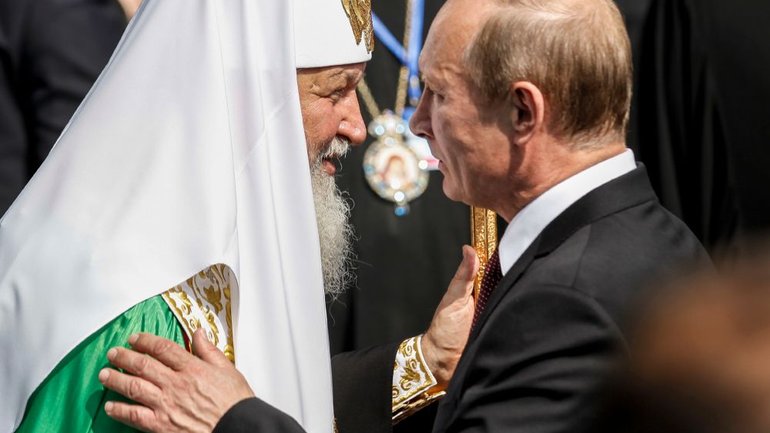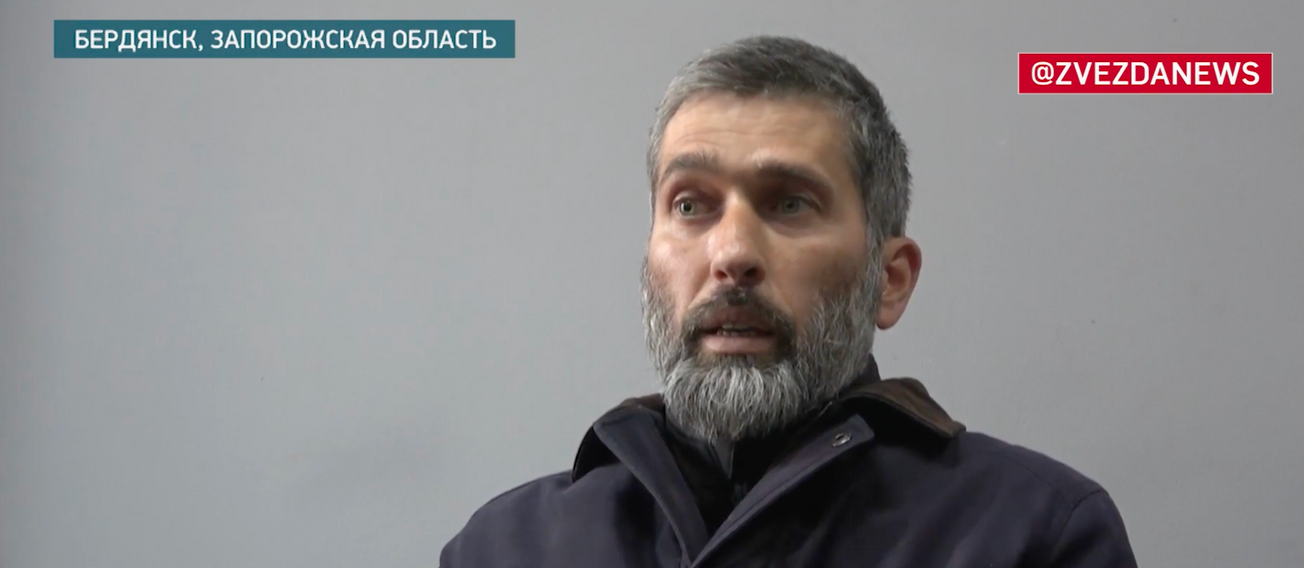Zelensky announces crackdown on Moscow-affiliated Orthodox Church in Ukraine

Ukraine's President Volodymyr Zelensky announced Thursday a coming major crackdown on the operation of Moscow-affiliated Orthodox churches in Ukraine. The move came after weeks of raids on Orthodox rectories and chanceries have reportedly uncovered stocks of Russian propaganda, which denies the right to Ukrainian independence.
“The National Security and Defense Council has instructed the government to propose to (parliament) a bill to prevent the activities in Ukraine of religious organizations affiliated with the centers of influence in the Russian Federation, in accordance with international law in the field of freedom of conscience and Ukraine's obligations in connection with accession to the Council of Europe.”
“National security officials should intensify measures to identify and counteract the subversive activities of the Russian special services in the religious environment of Ukraine,” the president added, highlighting the Ukrainian government's view that some Orthodox churches have become distribution centers for propaganda, and intelligence sources for Russian spies and collaborators.
Zelensky’s decree obliges Ukrainian cabinet ministers to submit within two months a bill to the country’s legislature that would could see Ukrainians face “personal, economic, and restrictive sanctions,” for continued religious activity overseen by Moscow.
The plan takes aim squarely at the Ukrainian Orthodox Church of the Moscow Patriarchate (UOC-MP), which exists under the leadership of Orthodox Patriarch Kirill of Moscow.
The president's announcement came hours after Ukraine’s Security Service, an intelligence and counterintelligence service, raided a monastery of Orthodox nuns in Transcarpathia, a far-Western region of Ukraine.
According to a government briefing after the raid, agents “found a large number of propaganda materials. Most of the literature is authored by Russian figures and published by Russian printers.”
“The law enforcement officers discovered books of xenophobic content with offensive fictions about other nationalities and religions. The pamphlets found deny Ukraine's right to independence and emphasize that Russia, Ukraine, and Belarus ‘cannot be divided.’”
The notion that Ukraine, Belarus, and Russia are intractably unified under Moscow's leadership is part of the Russkiy-mir worldview espoused by Russian President Vladimir Putin and endorsed by Moscow’s Patriarch Kirill, who has primacy over the Russian Orthodox Church and the affiliated UOC-MP.
The Russkiy-mir worldview holds that the “Russian world” covers almost the whole of Eastern Europe, and that Moscow has a historic right and obligation to exercise influence over the region.
It has formed part of the philosophical basis of Russia’s invasion of Ukraine, and been a central part of Russian propaganda emphasizing a claimed cultural and historic unity of Russian and Ukrainian people.
The invasion of Ukraine has had ecclesiastical consequences since Russian troops entered the country in February.
Since Russia began its full-scale invasion of Ukraine, dozens of Orthodox parishes in Ukraine have disaffiliated from hierarchy connected to Moscow, moving from the UOC-MP to the Orthodox Church of Ukraine, which is recognized as an independent Orthodox Church by the Ecumenical Patriarch of Constantinople, a central spiritual figure in Orthodoxy, whose religious relationship with Kirill was severed in 2018.
In recent weeks, the Ukrainian government has begun conducting raids on UOC-MP chanceries, rectories, and monasteries, reportedly discovering stockpiles of pro-Russian propaganda and identifying clerics allegedly collaborating with Russian forces.
The religious dimension of the war has also impacted Eastern Catholic Ukrainians.
Two Ukrainian Catholic priests were arrested by Russian occupying authorities this month - and others have been detained - on charges that they've supplied weapons to Ukrainian resistance militias.

Zelensky’s announcement Thursday also comes after years of Ukrainian political deliberations about the activities of the Russian-affiliated UOC-MP, which became especially contentious after Russia’s 2014 annexation of Crimea.
In 2018, some Ukrainian authorities launched an effort that would have required UOC-MP churches to post signs indicating their “subordination” to the Moscow Patriarchate, but the move prompted so much pushback it eventually languished.
After Russian troops entered Ukraine on Feb. 24, Zelensky’s administration rejected calls to restrict the UOC-MP’s religious activities in the country.
But public sentiment against the UOC-MP soured in Ukraine as Kirill spoke in support of Putin’s aims in the region, and as some UOC-MP leaders demonstrated their willingness to collaborate with Russian forces.
In May, the UOC-MP held a solemn governing meeting called a “sobor,” at which Church leaders eliminated all reference to Moscow in the Church’s governing statutes. But the move turned out to be mostly symbolic, as the UOC-MP’s laws which identified Moscow as the source of its communion with Orthodox Churches remained.
Ukrainian government authorities began to change their approach to the UOC-MP after Putin announced Sept. 30 the annexation of some southern and eastern regions of Ukraine. Annexation celebrations in Moscow were attended by the metropolitan archbishop and two other clerics of the UOC-MP — seen in Ukraine as a shocking show of solidarity with Russian invaders.
Ukrainian intelligence agents began searching UOC-MP properties in early October; the complete results of those raids are classified, as they are part of ongoing criminal trials in Ukraine. Media outlets have been given photos of Russian propaganda posters, pamphlets, and books, reportedly taken in the raids.
After a raid of the Chernivtsi diocesan chancery, the Ukrainian Security Service published letter in which Chernivtsi’s bishop conceded to another bishop that the UOC-MP remains wholly part of the Russian Orthodox Church, and that the decisions of the “sobor” were not an authentic separation.
The UOC-MP has denied the claims of the Ukrainian Security Service. The Church held a Nov. 23 synod of bishops, which released a statement saying that the UOC-MP rejoices in the victories of the Ukrainian military, and that clergymen in occupied territories should not be considered collaborators, because they serve their flock there.
But the synod statement did not mention those UOC-MP leaders who have supported publicly Russia’s invasion of the country.
In an Oct. 27 interview, Vasyl Malyuk, head of the Ukrainian Security Service, said that the UOC-MP is “an ideal field for the functioning of enemy agents."
While Zelensky’s announcement Thursday ensures that Ukrainian policy toward the UOC-MP will get tougher in the coming months, the specifics will not be clear until a bill is filed and debated in the country’s parliament.









